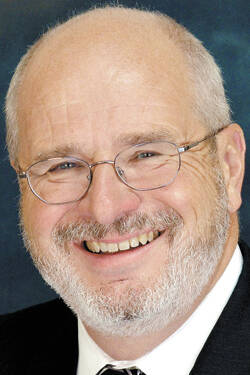John Krull
For The Republic
The court decisions came in quick succession, like the pounding of a hammer hitting a nail head in the hands of a skilled carpenter.
The organizers of the 2017 white nationalist rally in Charlottesville, Virginia, found themselves ordered by a court to pay victims of the violence there $26 million in damages. These included not just the guy who drove a car into a crowd and killed a young woman who was counter-protesting, but also the brains — the term is used loosely, exceedingly loosely — behind the whole thing, including the man who coined the term “alt-right.”
Following on that ruling, the jury in Brunswick, Georgia, found the three white men who gunned down Ahmaud Arbery for the “crime” of jogging while Black through their neighborhood guilty of homicide during the commission of a felony and other charges. The three men now face lifetime sentences behind bars — and they still have federal charges hanging over their heads.
They likely never again will draw breath as free men.
This all is as it should be.
The Virginia and Georgia verdicts came on the heels of one in Kenosha, Wisconsin.
There, a jury found Kyle Rittenhouse not guilty after he traveled across state lines with an AR-15-style weapon from his home in Illinois. He went to Kenosha after the city was torn by protests and disturbances following the police shooting of an unarmed Black man.
While in Kenosha, Rittenhouse shot three people and killed two of them.
The jury found that he acted in self-defense.
Progressives and champions of the Black Lives Matter movement found cause for despair in Rittenhouse’s acquittal. Devotees of the alt-right movement, on the other hand, celebrated the decision and lionized Rittenhouse.
The truth, as is almost always the case, is more complicated than that.
The fact is that Rittenhouse caught several huge breaks in his trial.
The first is that he drew a defendant’s judge, one who takes seriously the presumption of being considered innocent until proven guilty. The judge gave the defense maximum latitude while severely curtailing the prosecution’s options — right down to being allowed to call the people Rittenhouse shot dead “victims.”
Normally, Rittenhouse’s backers are scornful of such legal protections. In this case, though, such protections and presumptions helped keep their young hero from going to prison.
The second is that Rittenhouse’s supporters provided him with $2 million to spend for his legal defense. He benefited greatly in making his case from not having to rely on a public defender or an attorney working within a tight budget.
Last and perhaps most important is that the vagaries of Wisconsin state law aided him. If Rittenhouse had taken his gun and his video-game fantasies of heroism to many other states, he would have encountered laws better tailored to the cut of his offense.
Here in Indiana, for example, he could have been charged with voluntary manslaughter. Regardless of how friendly the judge or how well-funded his defense, young Rittenhouse now might be looking at spending a substantial slice of his life behind bars.
Even with all the breaks afforded Rittenhouse, the jury took days to rule that he should be set free.
It didn’t seem as though setting him free was a decision the jury members were eager to make.
Nor should they have been.
Even if Rittenhouse’s actions weren’t criminal — and they weren’t, under Wisconsin law — they were stupid and tragic. The only people who died during the unrest in Kenosha were the ones he killed.
If Rittenhouse’s champions see his acquittal as a license to indulge their “Dirty Harry” dreams of handing out vigilante justice, they shouldn’t.
What the courts have said in all three of these cases is that the rule of law matters.
Kyle Rittenhouse got off on what amounts to a technicality, which is what the law says.
Three white men in Georgia now will spend the remainder of their lives in prison, because that is what the law requires when people falsely imprison and murder another human being.
And the perpetrators of the deadly gathering in Charlottesville, Virginia, now have debts they will spend much of their lives repaying, because the law says one cannot use violence or the threat of violence as a form of political coercion.
In each case, the law spoke.
Again, this is as it should be.




